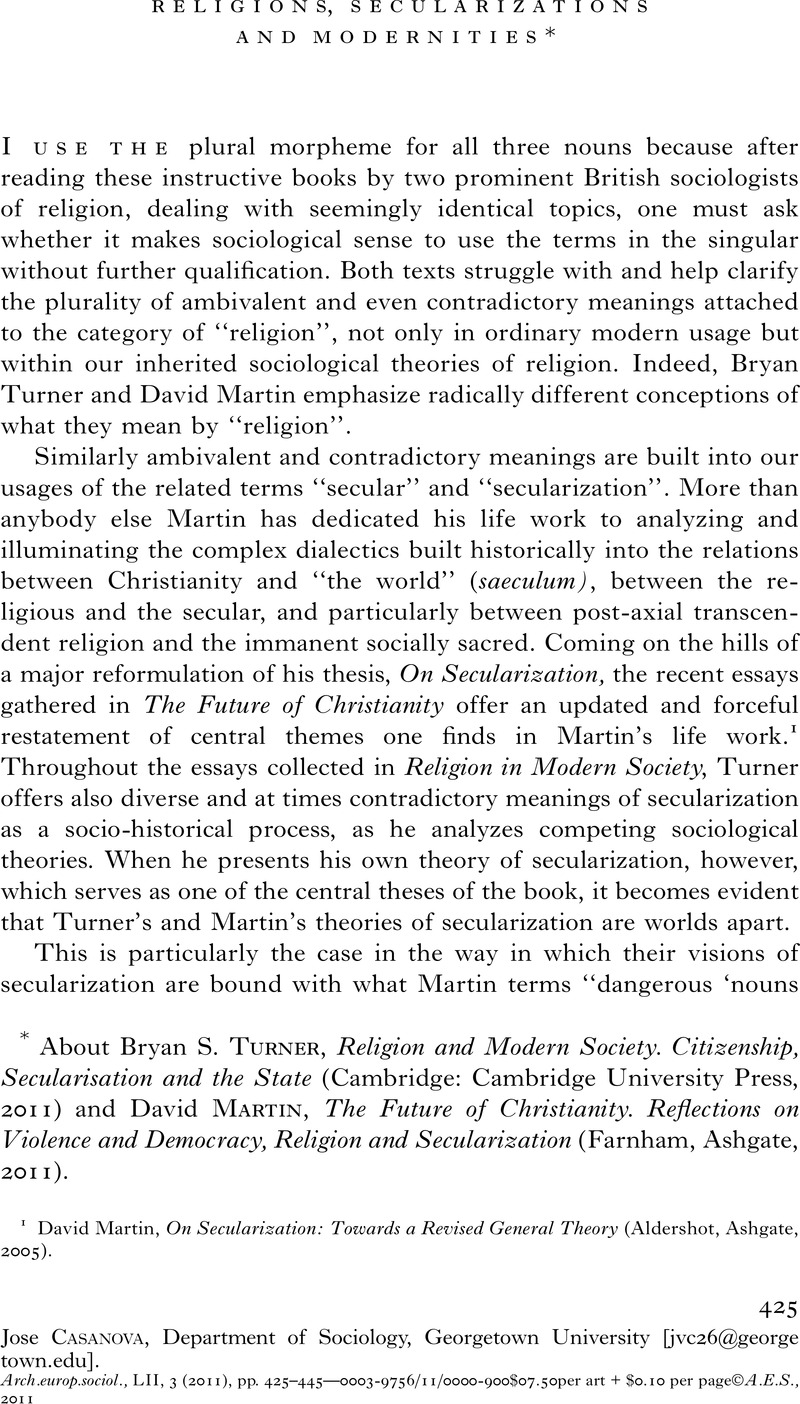Published online by Cambridge University Press: 10 February 2012

1 David Martin, On Secularization: Towards a Revised General Theory (Aldershot, Ashgate, 2005).
2 David Martin, A General Theory of Secularization (Oxford, Blackwell, 1978), and On Secularization: Towards a Revised General Theory (Aldershot: Ashgate 2005). His first formulation actually goes back one decade earlier to a seminar chaired by Ernest Gellner. See, David Martin, “Towards a General Theory of Secularization”, European Journal of Sociology, December 1969, pp; 192-201. Fortunately, almost by accident, he never followed his own even earlier recommendation: David Martin, “Towards Eliminating the Concept of Secularisation” in Julius Gould (ed.), The Penguin Survey of the Social Sciences (Hammondsworth, Penguin, 1965).
3 Talal Asad, Genealogies of Religion (Baltimore: Johns Hopkins University Press, 1991) and Formations of the Secular (Stanford, Stanford University Press, 2003).
4 Cf. José Casanova, “A Secular Age: Dawn or Twilight?” in Michael Warner, Craig Calhoun, and Jonathan Van Antwerpen, eds., Varieties of Secularism in a Secular Age (Cambridge, Harvard U.P., 2009)pp. 265-281; “Was für Religion braucht der Mensch? Religiöser Wandel im globalen Zeitalter”, in Bettina Holstein/Matthias Jung/Wolfgang Knöbl (Hg.) Das Erbe von Historismus und Pragmatismus und die Zukunft der Sozialtheorie (Frankfurt/New York, Campus, 2011) pp.169-190; “Exploring the Postsecular: Three Meanings of ‘the Secular’ and their Possible Transcendence”, in Craig Calhoun, Eduardo Mendieta, and Jonathan Van Antwerpen, eds. Habermas and Religion (Cambridge, UK, Polity Press, Fall 2012, forthcoming); and “Religion, the Axial Age and Secular Modernity in Bellah’s Theory of Religious Evolution”, in Robert N. Bellah and Hans Joas (eds.), The Axial Age and Its Consequences (Cambridge, Mass, Harvard University Press, 2012, forthcoming).